By Bashar Abubakar (Lead Writer)
Habiba Aliyu, 20, gave birth to her first child in 2019 while preparing to begin her journey as a health worker. As a student at a health training institution in Niger State, Aliyu wants to become a Community Health Extension Worker (CHEW). ‘’All my life I wanted to be a health worker. That is my dream and I want to achieve it,’’ she said, adding that she also knew exactly how she wanted to raise her family. ‘’Just before my due date I discussed with my husband about spacing our children and he agreed.”
Aliyu says she learnt about child spacing while attending antenatal care at a health facility in the area she and her husband lived before. They recently moved to a new community called Tayi in Chanchaga Local Government Area of Niger state. Thankfully, Tayi also has an adequate Primary Health Centre (PHC) where she could continue antenatal, and subsequently give birth. Forty days after she delivered her child, Aliyu started using family planning commodities at Tayi PHC and has continued using them since. ‘’This has allowed me to continue my education without worrying about pregnancy,’’ she added while on morning duty at the PHC under the supervision of Abdullahi Machi, the facility’s deputy officer-in-charge. While school is on break, Aliyu goes to the PHC to gain practical skills on primary health care delivery, including contraception.
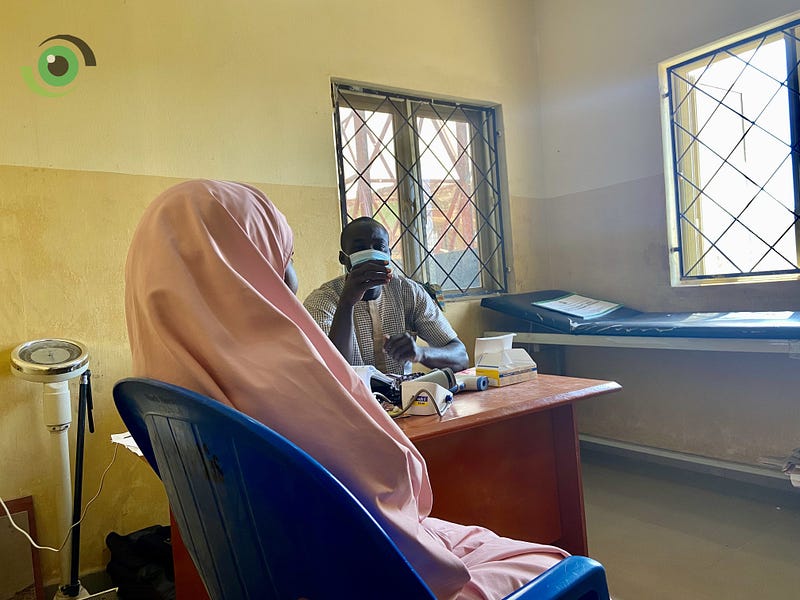
Tayi PHC sits on an open expanse in the Tayi rural community of Minna, the Niger state capital. Like other PHCs, it provides basic health care services such as antenatal and postnatal care, immunisation, treatment of common diseases such as malaria, and family planning services. In addition, the PHC workers conduct periodic house to house outreaches to create awareness about the services they provide. “That is how we get most of our family planning clients” says Aisha Halilu, the In-Charge of family planning services at the facility.
She said during outreaches, health workers devote considerable time discussing the benefits of child spacing with people in every household. ‘’Only women enter the houses, and we meet mostly women. So, we use that advantage to explain child spacing to them in a woman-to-woman point of view. Women suffer the most during pregnancy and childbirth. Spacing the children will allow their body to rest, and for them to do other things,’’ she added. She says the women who want to start using the commodities first discuss with their husbands before coming to the facility to access them. Machi said the health workers further explain to them and their husbands the benefits of child spacing, then educate them on each method. He added that the decision on which method to use is solely taken by the couple.
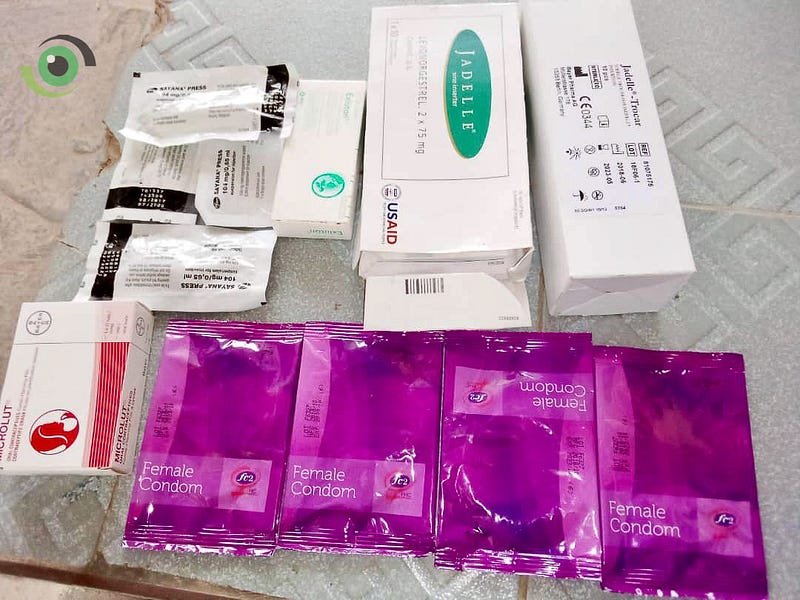
Leveraging antenatal and immunisation days for family planning
Antenatal and immunisation services are provided on Tuesdays and Wednesdays respectively. On these days, health workers usually give health talks. The talks are discussion forums where health workers and pregnant women or mothers converse about various health habits, including personal and environmental hygiene, facility delivery and others. Halilu says that during these talks health workers in the facility also discuss child spacing, and some women, especially those who come from far communities where outreaches do not reach, get the opportunity to hear about the benefits of child spacing directly from the health workers. ‘’Some women express interest and ask questions during the talks. And some who are pregnant start using the commodities after delivery, so also those who are breastfeeding,” Halilu said.
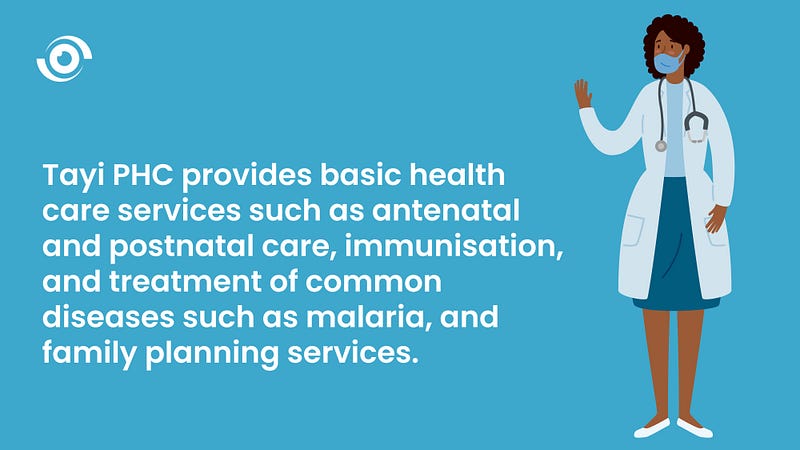
Murjanatu Isa, 35, is a mother of seven who said she first heard about the benefits of child spacing during an antenatal visit at the facility while pregnant with her fifth child. ‘’Even though I heard about it from other people before, the information I got then was that it was not safe and could result in complications for women,’’ she said. Isa admitted that her views changed after talks from the health workers, and she started using the commodities immediately she delivered her fifth child. ‘’There is a gap of at least two years each between my last two children’’ she said, noting that, ‘’My children before them were really close, and some didn’t get to be breastfed well’’. Isa says with the commodities, she wants to put a hold on getting pregnant for the foreseeable future. ‘’I want to rest for at least four years, I am not sure I will even get pregnant again. I think the children I have now are enough’’, she added.
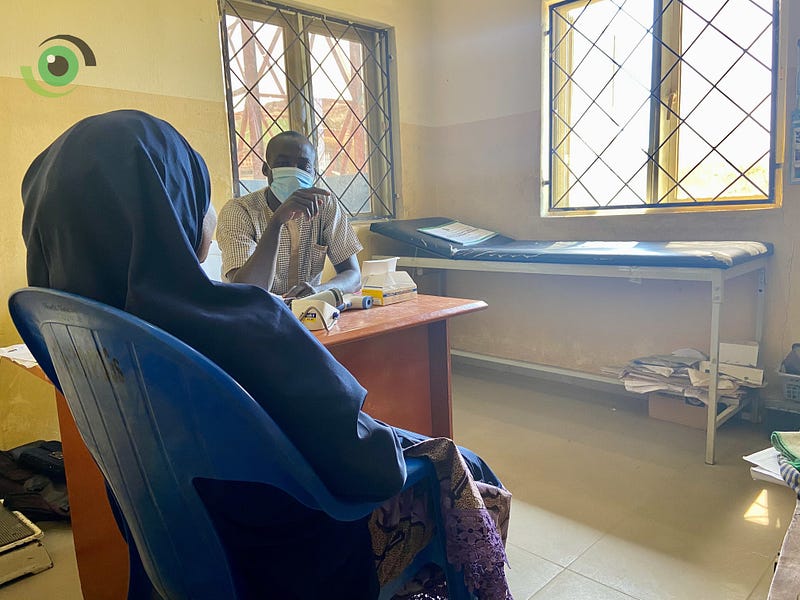
Religious leaders as child spacing advocates
Delivering messages on family planning could be sensitive to some people according to Halilu. This, she says is especially the case with men, due to cultural misconceptions about family planning. She says there is however a good understanding between Tayi PHC and religious leaders in the community, which has allowed for advocacy on child spacing to men by the religious leaders. ‘’We regularly advocate to the religious leaders to emphasise the benefits of child spacing during their sermons. And they do that’’, said Halilu. This is proving to be successful as there is increased acceptance of family planning commodities by men in the area, she said.
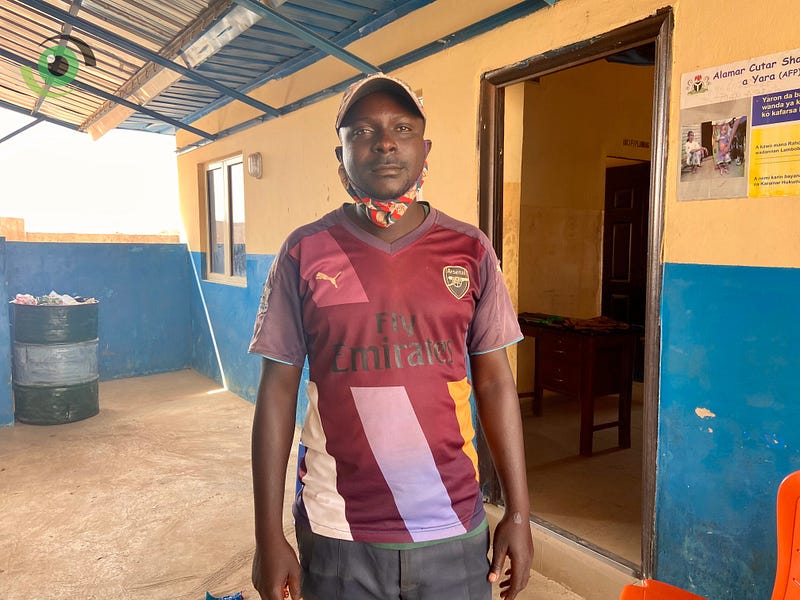
One of such men is 36-year-old father of four, Halilu Kabiru, a tailor. According to Kabiru, he brought the idea of child spacing to his wife when she was pregnant with their third child, which she gladly accepted. He said sermons from religious leaders first convinced him about child spacing. This he said was further enforced by a female health worker who happened to be his customer. ‘’The religious leaders usually talk about it in their sermons. I enquired more from my customer who laid out the benefits for me in details and assured me of the safety,’’ Kabiru added. He said the opportunity for his wife to rest after every delivery and having children he can cater for are the chief reasons he and his wife embraced child spacing. ‘’Our first three children were two years apart. But there is a gap of three years between the third and the fourth,’’ he said, adding that as their fourth child is now two months old, they plan to continue using family planning commodities till he reaches three years old at least.
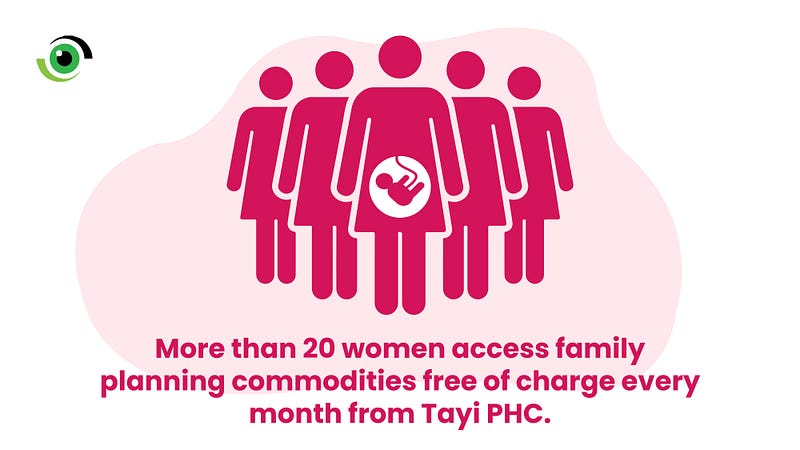
More than 20 women access family planning commodities free of charge every month from Tayi PHC according to Halilu. This number has been steadily increasing over the past few years thanks to their continued advocacy and the women’s willingness to discuss the benefits with other women who are not using the commodities. However, the PHC faces challenges of running out of stock of the commodities, which are supplied from Chanchaga local government health secretariat. This is a discouraging factor, as sometimes women come to the primary health centre, and if there are no commodities to give them, some never return.
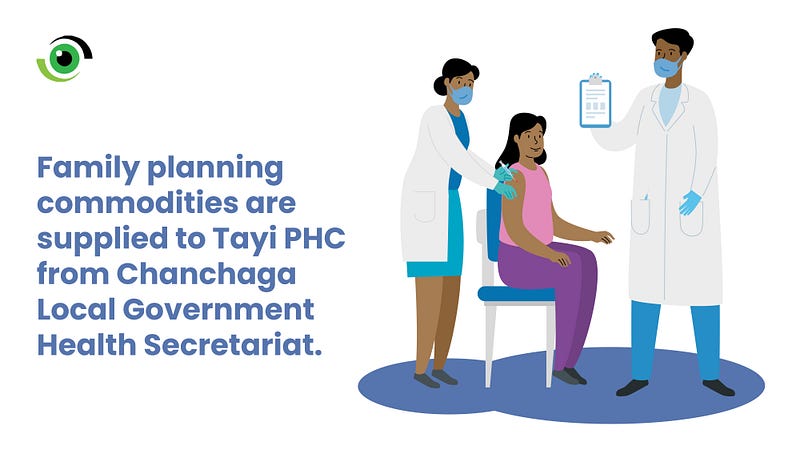
Chanchaga LGA should ensure that Tayi PHC and all other health facilities under it receive timely supplies of family planning commodities, to give every woman a chance of enjoying the benefits of using them. In addition to using religious leaders, health workers in the facility could also devise ways of deliberately reaching men directly to create awareness about the benefits of child spacing. As they are equipped with knowledge of the commodities, the health workers could complement the efforts of the religious leaders by providing the necessary clinical information to the men to help clear any doubts they may have. This may help improve the acceptance of child spacing by men, and as they are the decision makers in most homes in northern Nigeria, will improve usage of family planning commodities by women like Aliyu and Isa.


